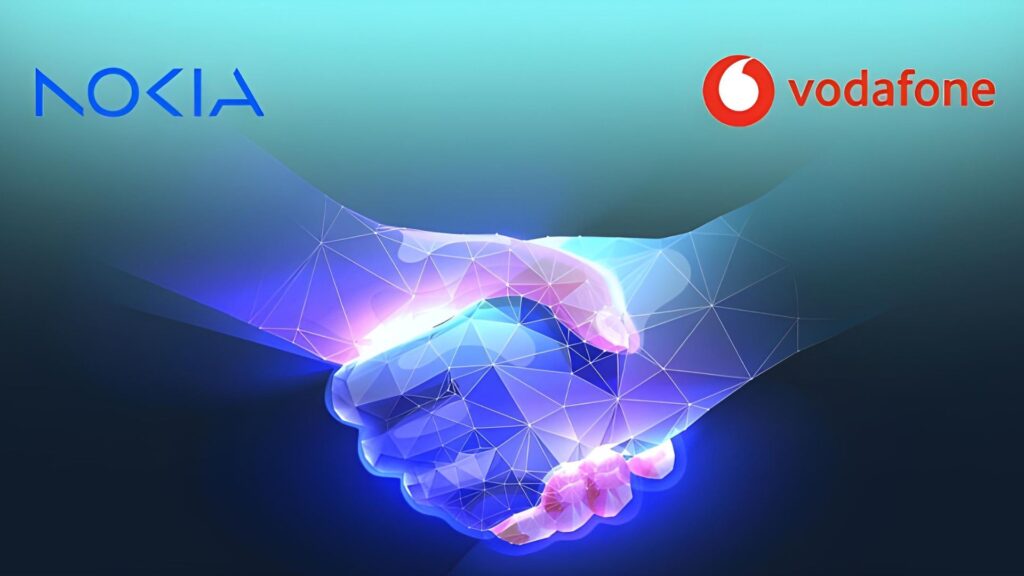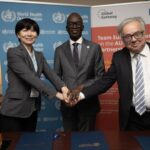Nokia has extended its supply agreement with Vodafone to deliver next-generation radio access network (RAN) infrastructure as part of the telecom group’s five-year investment program covering Europe and Africa.
The Finnish equipment maker announced the deal on October 14, saying it will provide advanced and energy-efficient technologies to enhance Vodafone’s mobile network infrastructure and accelerate 5G deployment across its markets. Vodafone operates in Africa mainly through its subsidiary Vodacom, present in South Africa, Tanzania, the Democratic Republic of Congo, Mozambique, Lesotho, and Egypt, as well as through Safaricom in Kenya and Ethiopia.
Mark Atkinson, head of Nokia’s RAN division, said the renewed partnership will drive connectivity transformation powered by artificial intelligence. “Today’s networks demand new levels of performance, trust, and resilience,” Atkinson said. “We are delighted to extend our collaboration with Vodafone, Vodacom, and their affiliates to build sustainable, standalone 5G networks across Europe and Africa. This agreement highlights the strength of our cutting-edge connectivity solutions as the AI supercycle accelerates.”
Under the extended deal, Nokia will supply equipment from its AirScale RAN portfolio, including Massive MIMO antennas, baseband units, and remote radio heads (RRH) powered by its ReefShark System-on-Chip technology.
The agreement also introduces Africa’s first dual-band 5G Massive MIMO radio, a major technological milestone for the continent’s mobile connectivity landscape. Nokia said the rollout will boost network performance, capacity, and coverage while cutting energy use and physical space requirements — a critical factor as African operators expand broadband access to underserved areas.
Nokia will also deploy its AI-powered MantaRay NM network management platform, designed to centralize monitoring and optimize operations across Vodafone’s European and African networks.
Vodafone and Nokia have a long history of cooperation across multiple innovation and modernization initiatives. The two companies have conducted Open RAN trials in the United Kingdom and launched network modernization programs in South Africa and Egypt.
In 2022, Nokia partnered with Safaricom in Kenya to test a network slicing technology that allows operators to allocate dedicated lanes for enterprise-grade connectivity and secure cloud services. Nokia also supported Vodacom’s migration from 2G and 3G to 4G and 5G, helping extend rural coverage and enhance connectivity across the continent.
According to GSMA Intelligence, mobile technologies and services contributed about 7% of sub-Saharan Africa’s GDP, or over $140 billion in 2023. The figure is projected to rise to $170 billion by 2030 with the continued expansion of 5G, which alone could add $10 billion to the regional economy by the end of the decade.
Nokia’s energy-efficient RAN solutions and AI-based optimization tools could help operators lower operational costs in markets burdened by high energy prices and limited infrastructure.
Cc: This article was initially published in French by Hikmatu Bilali
Adapted in English by Ange Jason Quenum



